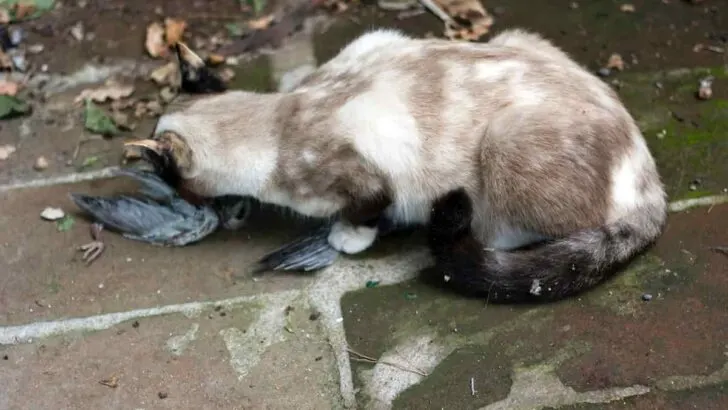So, its finally happened. Your cat has caught a bird and won’t let go. While it’s natural for cats to hunt, it can be distressing for both the owner and the bird. So, how can you get your cat to release the bird?
One method is to try distracting your cat with a toy or treat to encourage them to release the bird. You can also gently press on the back of your cat’s neck, known as the scruff, which can trigger a reflex that causes them to release its prey.
Cats catching birds is nothing new, but it’s not the most comfortable situation for a pet owner. It’s important to approach the situation calmly. Don’t shout or try to physically force your cat to let go, that just makes things worse. Your cat could become more agitated and potentially harm the bird further.
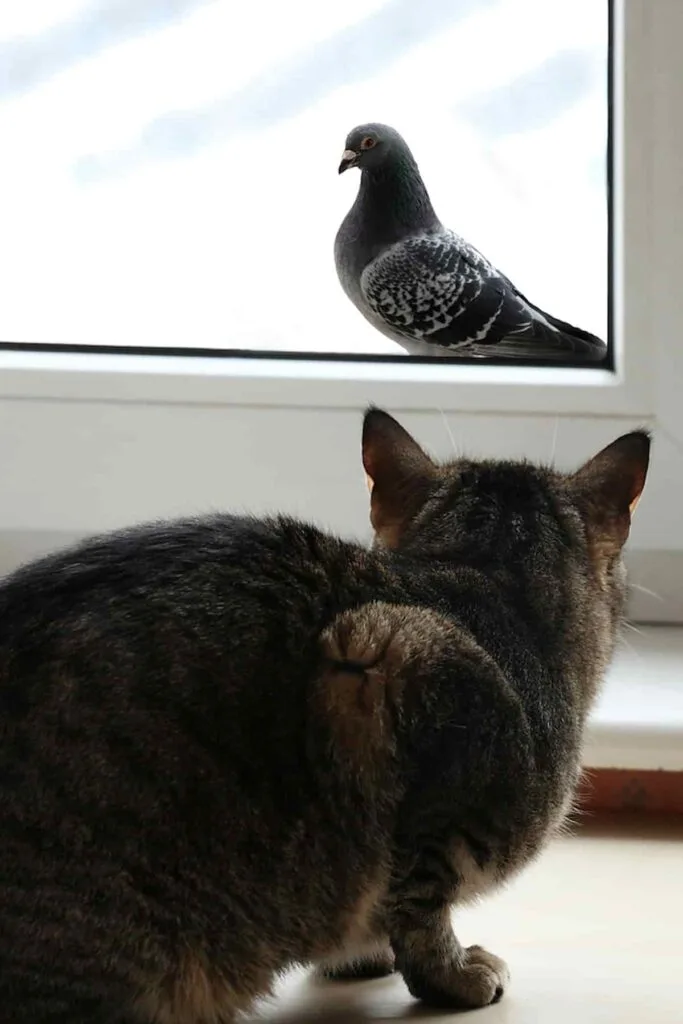
Understanding the Situation
When a cat brings home a bird, it can be distressing for both the owner and the bird. Understanding why cats hunt birds and why stopping them from doing so is crucial is crucial.
Why Do Cats Hunt Birds?
Cats are born hunters, and hunting is an innate behavior for them. For cats, it’s a way to satisfy their primal needs of catching prey, staying active, and relieving boredom – even when they have enough food!
Domestic cats may find themselves chasing birds due to their intriguing movement or sound. Hunting is fun and encourages healthy physical activity in our feline friends.
Why Is It Important to Stop Your Cat from Hunting Birds?
According to RSPB, domesticated cats are responsible for killing millions of birds yearly in the UK. In fact, that number is closer to 27 million birds! This harmful effect on ecosystems can result in bird species facing a decrease and possible extinction if not dealt with accordingly.
Cats that hunt birds risk contracting diseases and parasites from their prey.
Protecting birds and keeping your cat safe is essential; hunting can cause physical injuries or sickness for the kitty, as well as the possibility of ingesting toxins from their prey. Thus, it’s paramount to prevent cats from indulging in this act of pursuit.
Preventing the Hunt
We love letting our cat Harley safely explore the outdoors as much as possible. However, his hunting instincts always kick in, so sometimes we have to limit his exposure there. Here are some preventative tips you can try that have worked for us, including the more obvious point, which is keeping your cat indoors more often.
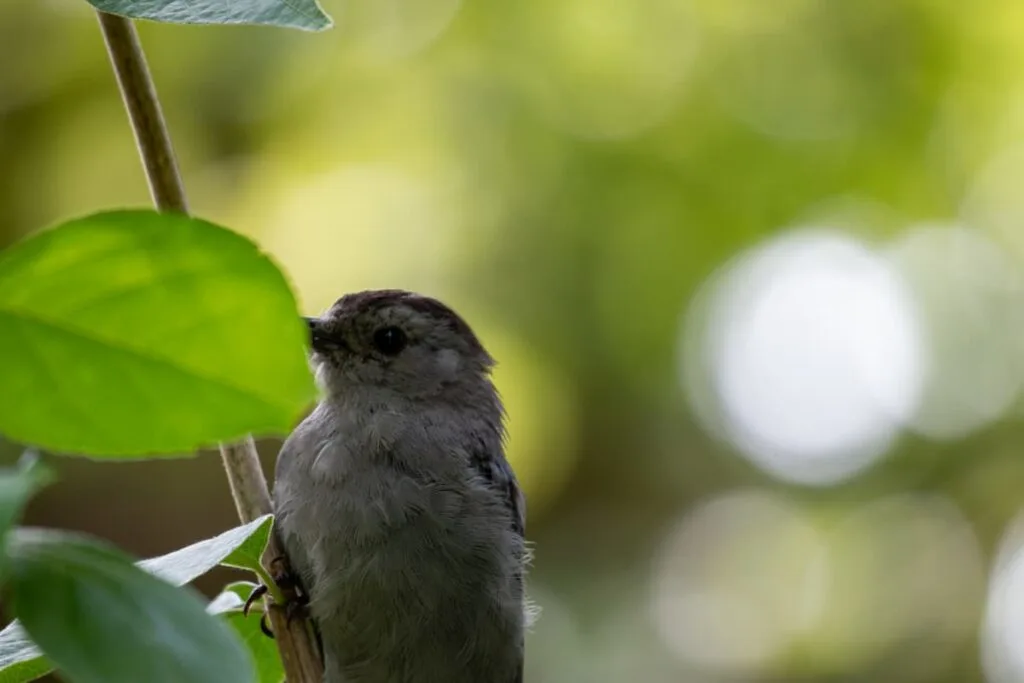
Keeping Your Cat Indoors
If you are looking for a way to protect wild birds from your cat’s hunting instinct, keeping them indoors is one of the best measures. Your cat may struggle with this transition, particularly if they have been accustomed to going outdoors regularly.
However, it is important to remember that indoor cats generally have longer lifespans and are less likely to get into fights or contract diseases from other animals.
If you’ve chosen to keep your cat indoors, ensure they have many toys and activities to occupy them. A cat tree or window perch will give your cat a bird’s-eye view of the outside world!
Providing Enough Toys and Exercise
Cats are natural hunters, so it is important to provide them with plenty of toys and exercise to satisfy their hunting instincts. Interactive toys, such as feather wands or laser pointers, can be a great way to engage your cat in playtime and keep them active.
The laser pointer works well with our cat because it’s versatile. You can point it along the floors, up the walls, and more, allowing your cat to explore, jump, crawl under surfaces, and more. It just makes things much more fun for them.
Even feeding time can be rewarding for cats. We try to mentally engage our cat with puzzle feeders and treat dispensers to help stave off listlessness. It keeps him stimulated but also diminishes his chances of hunting birds due to boredom.
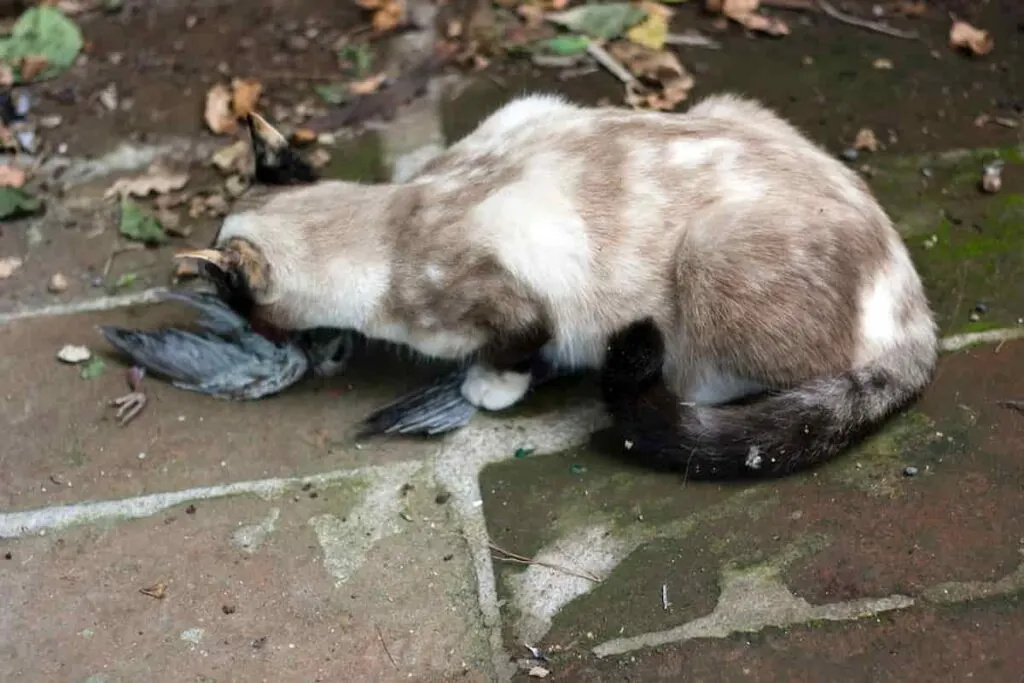
Training Your Cat to Stop Hunting Birds
Training your cat to stop hunting birds can be challenging, but it is possible with patience and consistency. One method is to use a spray bottle filled with water to discourage your cat from hunting birds.
Whenever you see your cat stalking a bird, spray them with a quick burst of water to startle them and interrupt their behavior.
You can also use positive reinforcement training to encourage your cat to stop hunting birds. Whenever you see your cat ignoring a bird or engaging in other non-hunting behaviors, reward them with treats or praise to reinforce the desired behavior.
Remember, training your cat to stop hunting birds takes time and patience. Be consistent with your training, and don’t give up if you don’t see results right away.
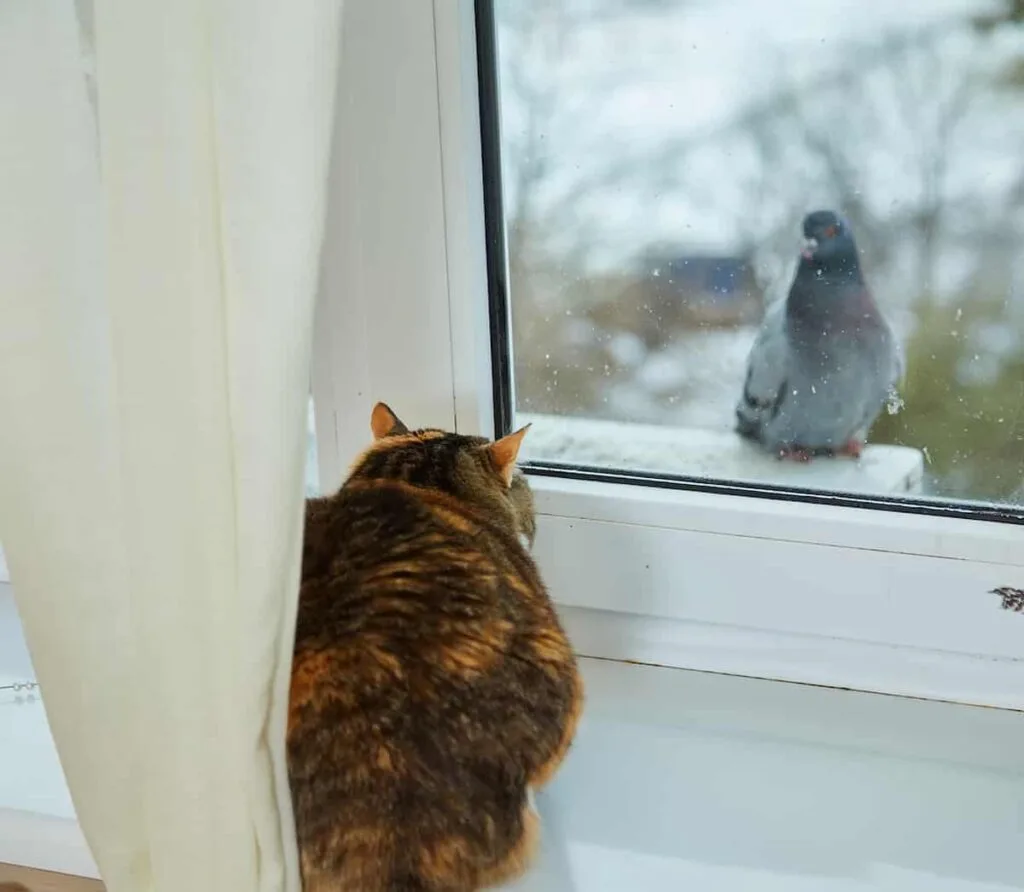
Stopping the Hunt
If your cat has caught a bird, it’s important to stop the hunt as soon as possible to prevent harm to the bird. Here are some ways to safely intervene:
Approaching Your Cat Safely
Approach your cat slowly and calmly. Do not yell or run towards them as this may scare them and cause them to run away with the bird. Use a calm voice to call your cat’s name and try to lure them away from the bird with a favorite toy or treat.
Using Distractions
Divert your cat’s attention by making a loud noise or introducing a toy. Try shaking a can full of coins or clapping your hands loudly to startle them. You could also attempt to distract the feline by throwing something they like in another direction, such as their favorite toy or treat!
Using Water
Water can be an effective way to dissuade your cat from hunting. Fill a spray bottle with water and lightly spritz them; this will startle them, making them cease their seeking activities.
Just be careful spraying directly into your cat’s eyes. It’s not necessarily harmful, but it can spark a really nasty attitude from your cat if done too aggressively.
Using Loud Noises
If your cat likes to hunt, you can make a loud noise like clapping your hands or blowing a whistle. You can also bang on a pot or pan. This will surprise the cat and make it stop hunting.
Using Physical Intervention
If the aforementioned strategies do not work for your cat, you may need to take physical action. To ensure the safety of both creatures involved in this ordeal, utilize a thick towel or blanket to firmly yet gently wrap your cat and carefully remove the bird from its mouth.
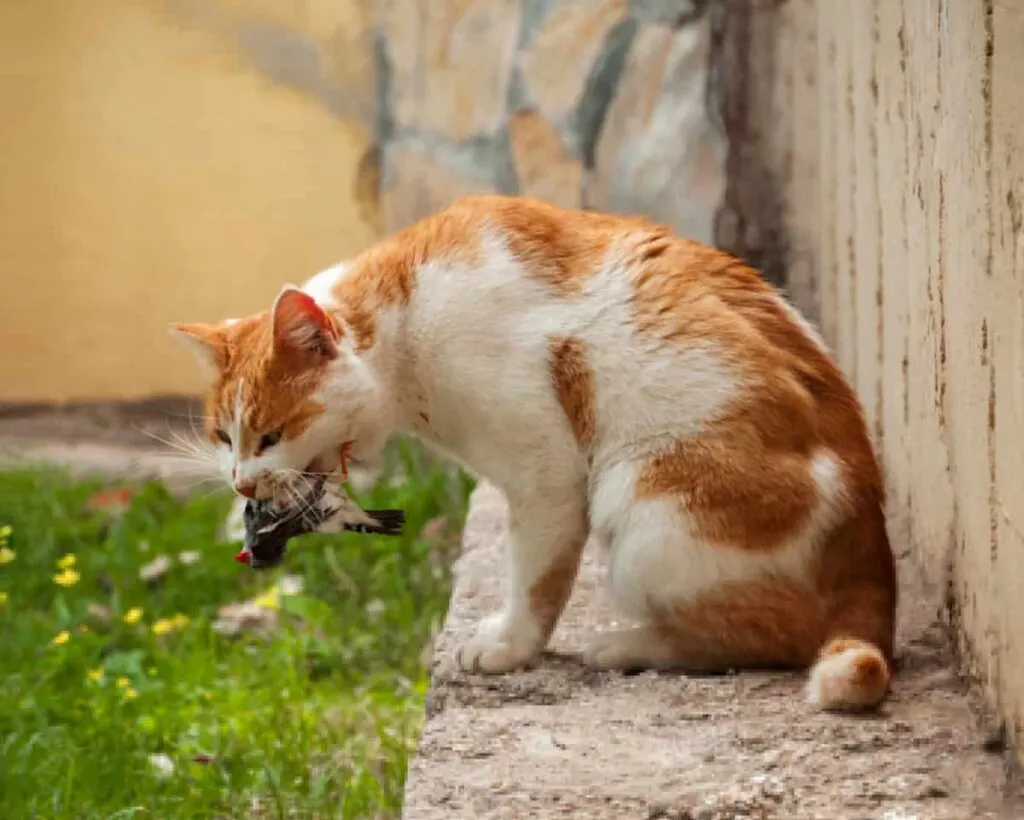
What do I do if my cat catches a bird?
Cats are natural hunters, and it’s not uncommon for them to catch birds. If your cat has caught a bird, it’s essential to take action quickly to ensure its safety and well-being. Here are some steps you can take:
- Remove the bird from your cat’s mouth: The first step is to remove the bird from your cat’s mouth as gently as possible. Be careful not to hurt the bird in the process.
- Assess the bird’s condition: Once it has been safely collected, it’s time to assess its condition. Examine for any signs of visible trauma – broken wings or legs, open wounds, and punctures – as fast action is essential if there are indications that the bird may be bleeding or injured in some way.
- Place the bird in a safe, dark, and well-ventilated box: If the bird is injured, place it in a dark, well-ventilated box. Make sure the box is not too small or too big for the bird. Keep it away from cats and other pets, so they don’t hurt it.
- Contact a professional: Contact your local wildlife rescue or nearest vet with wildlife/bird experience. They will be able to provide the necessary care and treatment for the bird.
Remember, even a simple puncture wound by a cat’s tooth can result in a fatal infection. Acting quickly and getting the bird the help it needs is crucial.

My name is James, and welcome to FAQCats!
Along with our team of cat owners, expert pet enthusiasts, and pet professionals, we aim to write engaging helpful, engaging content about cats. At FAQCats we strive to provide content that’s accurate and fun to read. Our team writes about everything related to cats; even the most complex of topics. Through extensive research and caring for our own fur-pals, we’re able to provide something cat owners worldwide will love. Have a look around, and leave us feedback anytime!

